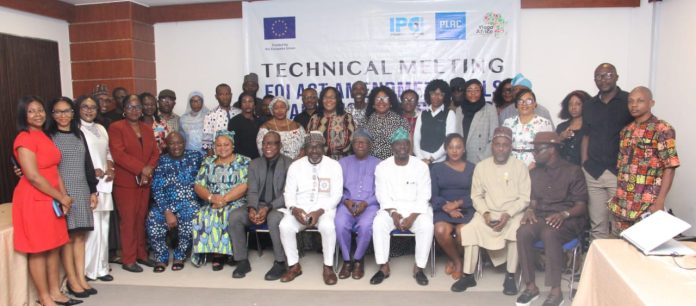Media experts, legal practitioners, civil society organisations, and government officials have jointly called for a comprehensive overhaul of Nigeria’s Freedom of Information (FOI) Act, describing the current framework as ineffective, poorly enforced, and incapable of ensuring transparency across public institutions.
The call was made at a two-day technical meeting held in Abuja, convened by the International Press Centre (IPC), in collaboration with PLAC and YIAGA Africa, with support from the European Union under the EU-SDGN II initiative.
Stakeholders at the meeting decried the 14-year history of poor compliance with the FOI Act by public institutions, noting that not a single public official has been sanctioned for denying information requests, despite the Act making such denials an offence.
Speaking during his presentation, Mr Edetaen Ojo of Media Rights Agenda expressed that the law, as it stands, lacks teeth.
“It relies too heavily on court processes that are slow and expensive, while no administrative sanctions exist to deter public bodies from flouting their obligations,” he said.
Meanwhile, the Executive Director of IPC, Mr. Lanre Arogundade stressed that the FOI Act’s success depends not just on legislation but on implementation.
“We need clear sanctions and a system that doesn’t force citizens to go to court for every violation,” he said.
The forum observed that enforcement challenges, lack of an independent oversight body, and a weak compliance culture among public institutions have significantly limited the Act’s usefulness in promoting transparency.
Although the Supreme Court recently extended the FOI Act’s application to state and local governments, participants warned that the Office of the Attorney-General lacks the capacity to enforce compliance across Nigeria’s 774 local councils and 36 states.
They called for a harmonised amendment bill that would address core weaknesses in the Act, establish a robust administrative enforcement mechanism, and reduce overreliance on litigation.
The meeting concluded with the adoption of a communique and the creation of a technical committee to consolidate all stakeholders’ input into a position paper for the National Assembly.


